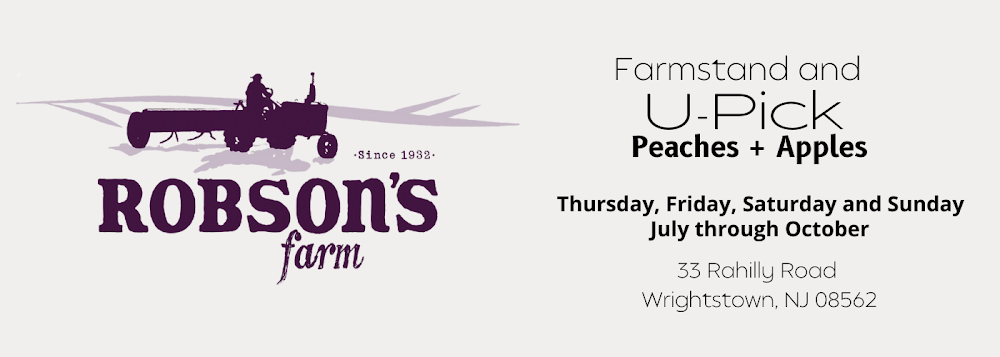
Are your peaches Genetically Modified?
That was the question that inspired this post. A question like that tells me that the asker (and I mean this in a loving way) doesn't really understand which products are effected. He/she has heard about Genetically Modified food...maybe done a little research...a little article reading but didn't get into the details...like genetically modified peaches don't exist.
....a sigh of relief for the shopper who asked that question.
At the farmers' market there is usually a line and people on the move which can make it tough to get into a full blown conversation so I will direct friends to this post for moments like when I get the question, "Are your peaches Genetically Modified?"
The list of genetically modified food is actually quite short...it's just that some of the items that are genetically modified are so widely grown they are the majority in production....like corn and soybeans.
Now, I am not here to debate the wrongness or rightness of Genetically Modified food. I am simply going to empower you with facts.
Fact 1: We are a GMO free farm because I want to grow food for everyone...for people who don't give a second thought about GMO's and for the people who, I'd literally have to pay them to take a genetically modified product.
Fact 2: You actually run into Genetically Modified products less at fresh markets like your favorite tailgate market or local farm stand. The grocery store is a hot bed for genetically modified food because a ton of processed foods contain corn, soy, and canola.
Fact 3: Genetic modification is done to:
- make a crop herbicide resistant...less weeds = less cultivating, less labor cost, less expensive product to produce and less expensive for consumers (things that are round-up-ready are genetically modified)
- or make a crop resistant to pests...so less spraying. Corn is modified with Bt which is an organically occurring insecticide.
- or make a crop virus resistant
- or attempt at extending storage life
- .....or prevent browning? While I was at the Mid Atlantic Fruit and Vegetable Growers annual meeting in January there were the Arctic Apple people trying to create interest and excitement about a genetically modified apple that won't turn brown when cut. This is not on the market and not something I'd ever consider growing. Why bother. The Rome variety of apple is a slow browning apple...just pick those up or instill in your children that an apple that has browned is not bad....it's just a fact of life. Quite simple.
And now for the list....
High Possibility of Genetic Modification
Corn
Soy
Cotton
Papaya
Canola
Note: Some lists also cite Zucchini and Yellow Squash
but it's a small amount of acreage grown
Common Ingredients Derived from GMO Crops
From the Non-GMO Project
"Amino Acids, Aspartame, Ascorbic Acid, Sodium Ascorbate, Vitamin C, Citric Acid, Sodium Citrate, Ethanol, Flavorings (“natural” and “artificial”), High-Fructose Corn Syrup, Hydrolyzed Vegetable Protein, Lactic Acid, Maltodextrins, Molasses, Monosodium Glutamate, Sucrose, Textured Vegetable Protein (TVP), Xanthan Gum, Vitamins, Yeast Products"
....And now you see why I said that you are more likely to encounter GMO's via processed items at the grocery store.
Genetically Modified tomatoes were at one time on the market but are no longer. Potatoes may be something to worry about in the future.
So there you have it....the list to leave you able to ask questions about the right products so you can shop confidently.

Good post Rose, I really appreciate hearing your response and perspective as a farmer to stuff like this. I especially like your comment on a different post from last year talking about similar gmo topic.....something like is that same customer that is looking for only organic non gmo produce ALSO only drinking organic non gmo beer?????????? Great point.
ReplyDeleteGreat post Rose! Really enjoyed the information.
ReplyDeleteThanks so much guys!
ReplyDeleteBTW I heard that you are going to do some season extension stuff with unheated low tunnels to pull salad green production into December. AWESOME!!!!
ReplyDeleteRose: Good info. Thank you for keeping us in the know. And thank you for being a farmer! Fresh farm produce is vital to good heath and well being and yours is top-notch. We appreciate your hard work and dedication.
ReplyDeleteVery sweet comment! Thank you so much.
DeleteHey Rose, have you checked out Johnny's salanova lettuce line? I was just lookin at a powerpoint that some farm put together about their salad green production and the pics were pretty cool. You gotta check it out. It's a full grown super dense head of lettuce that you can "core" to release what looks like baby salad greens.
ReplyDeleteI haven't checked out that lettuce but I will now! You know me...I'll try to grow anything as long as it has some kind of fun factor. As far as lettuce goes I'm most interested in pursuing heat tolerant lettuce for summer production. I grow all this lettuce in the spring...no one buys it because they aren't in the salad mood I guess and then as soon as it's done in early summer I get asked for lettuce at least 3-4 times a market. Heat tolerant lettuce is a priority for next year. Stay tuned!
Delete